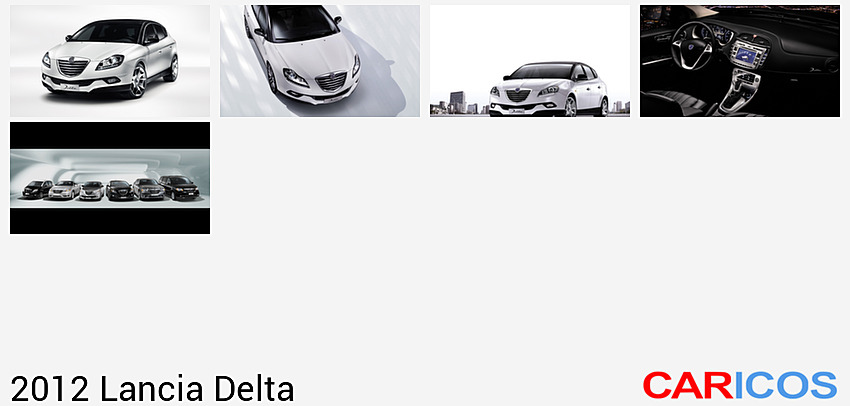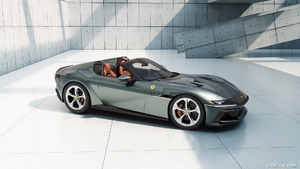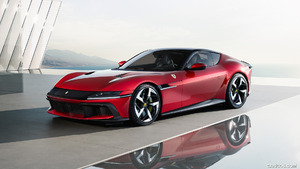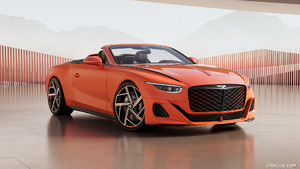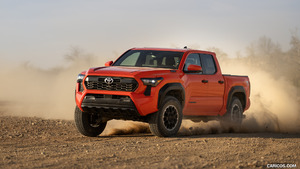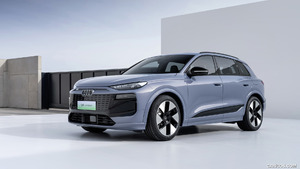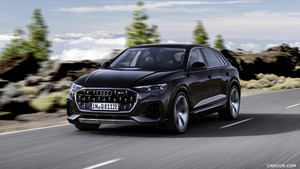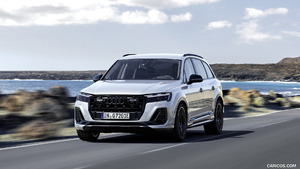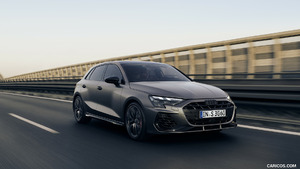Lancia Delta
Presented at the Geneva International Motor Show in March 2008, Lancia Delta is the Brand's milestone model which heralded a new concept, bringing the attributes of a flagship to segment C. Its 4.5 metres pack in all the luxury and interior space of a higher category: the seats recline into chaise-longues, the upholstery reveals quality textures and passengers are cocooned by an almost magical comfort and silence on every journey.
So, Delta is the compact flagship that fulfils the modern requirements of mobility and prestige thanks to the concept of "downsizing", i.e. ensuring performance and luxury of a superior level at reduced cost, size and fuel consumption levels. The latest innovations of the range fall within this context: a new grille in keeping with the new Lancia family feeling, and a new offer of trim levels and engines including the 105 HP Euro 5 1.6 Multijet and the unprecedented 120 HP Euro 5 1.4 Turbo Jet LPG. The new Delta is sold in major European markets (with the Chrysler trademark in Great Britain and Ireland).
The new EURO 5 120 HP bi-fuel 1.4 Turbo Jet
Following the huge success of the Euro 4 version, the Lancia Delta with the new 120 HP 1.4 Turbo LPG in the Euro 5 version returns to the Ecochic range.
The new dual fuel (LPG and petrol) version completes the Ecochic range, today made up of the Ypsilon and Musa models, according to the principle, "The environment is a luxury we want to allow ourselves". Compared with petrol and diesel fuel, LPG cuts particulate emissions to zero and slashes the emission of other pollutant substances (up to 15% less carbon dioxide, up to 20% less carbon monoxide and up to 60% less unburnt hydrocarbons). Thanks to these specifications, LPG prolongs the life of the engine and improves the quality of the environment. Last but not least, running on LPG practically does not affect passenger comfort or vehicle performance.
Equipped with the EURO 5 120 HP 1.4 Turbo Jet bi-fuel engine, the new Delta LPG is available in three different trim levels (Steel, Silver and Gold) for all European markets.
Like for the Ypsilon and Musa models fitted with a 77 HP Euro 5 1.4 8V bi-fuel engine, also the Lancia Delta offers a bi-fuel engine (120 HP 1.4 Turbo Jet) built by Fiat Powertrain, designed specifically for maximum integration and reliability with the LPG system. It is factory-fitted (each car is certified, tested and guaranteed by Lancia Automobiles and, as such, can take advantage of the government incentive schemes in various European countries).
In detail, the power unit for the Lancia Delta Turbo LPG has valves and valve seats with configurations and materials specially designed for LPG operation. Equipped with a special intake system for the LPG injectors, not only does the particular bi-fuel 1.4 Turbo Jet have all the additional electrical wiring built-in, but develops a maximum power of 120 HP (88 kW) at 5000 rpm and delivers a maximum torque of 206 Nm (21 kg/m) at 1750 rpm. Equipped like this, the Lancia Delta Turbo LPG reaches a top speed of 195 km/h and acceleration from 0 to 100 km/h in 9.8 seconds.
The new Delta version is designed to run independently on either petrol or LPG: the engine is always started up on petrol and switches automatically to LPG after about 40 seconds. It is of course possible to switch from one fuel to another whilst driving by pressing a special button built into the dashboard. If the driver finds there is no LPG left in the cylinder, switching to petrol operation takes place automatically to ensure a smooth drive. Its overall range is impressive: 1413 km. Lastly, it should be stressed that LPG is a much cheaper fuel than petrol, diesel or methane (the price per litre is about 50% less than unleaded petrol). It is possible to fill the tank of the Delta Turbo LPG will just 37 euros (average price in Italy). The distribution network is also widespread throughout Europe, with more than 10,000 points of sale.
The toroid type (ring-shaped) LPG cylinder has a 52-litre capacity and is located in the spare wheel housing so that it does not take up space in the luggage compartment (the inflation kit is fitted as standard).
Compared with an after-market conversion, a car with a factory-fitted system has many advantages. For example, the use of specific materials and components and the application of dedicated technology enabling the customer to benefit from a Lancia contractual warranty. Since the modifications to the chassis are carried out directly in the factory, the car makes claim to the highest standards of comfort and safety as borne out by the numerous and stringent tests that the various system components are subjected to.

